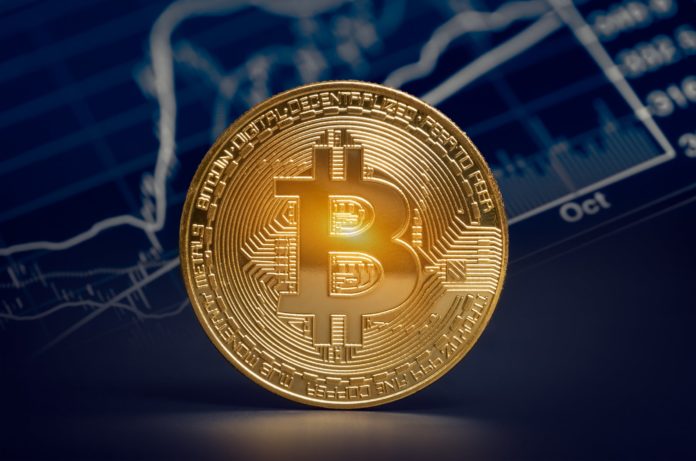I got blocked by a Facebook friend for answering two questions he’d posted about cryptocurrencies. I don’t remember the questions, but I remember that answering them required making two false assumptions, so rather than answering the questions, I pointed out why no rational answer was possible.
It occurred to me that my former Facebook friend may not be the only person holding these false assumptions, so I wanted to talk about cryptocurrencies and intrinsic value here.
I’ll talk about intrinsic value first, as I can then use the concept of intrinsic value to discuss cryptocurrencies. Intrinsic value is a measure of what an asset is worth outside of its use as an investment vehicle. Gold, for example, is used in jewelry, circuitry, dentistry, and various other things. Even if people did not invest into gold, it would still have market value based on its use in those other things.
A stock has intrinsic value, based on the net present value of all future earnings.
A dollar can be said to have intrinsic value in that debt is carried in dollars, requiring people to perform labor in order to repay their debt. The value of the labor people need to perform to repay a dollar of debt can be said to be the intrinsic value of the dollar.
Notice that I said, “can be said to have,” in relation to the dollar. Mankind has, as of yet, not found a perfect monetary system. Until or unless we do, the concept of an intrinsic value to a currency is debatable. There are many economists who say we have a fiat currency. I would point out that we have only $865 billion in paper and coin currency (which is unquestionably fiat), whereas we have over $37 trillion in circulation worldwide if we include money deposited in checking and savings accounts (aka ‘M2’ money) and if we include what economists call ‘broad money,’ the amount approaches $100 trillion.
M2 is the form of money that drives inflation, so when people talk about the money ‘in circulation’ they generally mean M2.
Note that the $865 billion in paper currency is a drop in the bucket compared to the $37 trillion in M2 money. Every single dollar in circulation worldwide other than the $865 billion in paper money is offset by an equal dollar in debt, which means that someone will have to perform work to either repay their own debt, or to pay taxes to a government, which will in turn repay that debt.
I would argue that we have a debt-based monetary supply, and that as such, the dollar has an intrinsic value based on the need to perform labor to repay debt, but understand that there are economists who disagree with me, and that the question of whether or not currency has intrinsic value has brought forth another economic term: utility. In a nutshell, economists who believe money has no intrinsic value would say that it does have utility. Really this is a semantic argument – both ‘intrinsic value’ and ‘utility’ are used interchangeably.
Another purpose behind the term ‘utility’ is that though clearly some things, like gold, have an intrinsic value, it can be hard to estimate what that intrinsic value is. We know that a stock’s intrinsic value is the net present value of all future earnings, but what will those future earnings be? We have no way of knowing for sure. The term ‘utility’ is often used in place of ‘intrinsic value’ to clarify that whatever number is thrown out, is really just an educated guess, usually based on a model of some kind.
Debt is not held in bitcoin, and as a consequence debt is not repaid in bitcoin. Bitcoin is not, in fact, used as a currency at all. People, rather, sell bitcoin into dollars before buying something with them. Even if someone wants to exchange bitcoin for some other cryptocurrency, they first have to sell bitcoin into dollars before they can purchase the other cryptocurrency in dollars. These transactions may occur behind the scene, but in reality the cryptocurrencies are being used as investment vehicles rather than as currencies. The actual exchange of goods and services in cryptocurrencies without first converting to dollars is exceedingly rare, and as long as the dollar is used as an intermediary device, crypto currencies will not be currencies.
There are those who believe that cryptocurrencies will eventually be used as currencies, and that is possible. Perhaps one day they will be. Unfortunately, however, the vast majority of people who are buying cryptocurrencies are doing so speculatively, on the assumption that the cryptocurrency will be worth more in the future than it is today. A good currency is stable in value, and bitcoin is not apt to be used as a currency unless it stops growing in value.
I want to stress that it is entirely possible for bitcoin, or some other cryptocurrency, to become an actual currency. I can even tell you when that could happen. Watch the value of bitcoin over time relative to gold. Should bitcoin, or some other cryptocurrency, start to track in value relative to gold more closely than does the dollar, that would indicate that bitcoin is holding value better than is the dollar, and at that point bitcoin would be a more efficient vehicle of exchange than is the dollar.
But that is not how bitcoin is used today. Today bitcoin is growing in value much faster than is gold, indicating that people are still using it to make, rather than to store (or to transfer) wealth.
Unlike gold, bitcoin is not a raw material in any good or service. Bitcoin has no earnings to estimate the net present value of. Bitcoin has no intrinsic value at all.
Some who dabble in economics, and who like cryptocurrencies, have begun to claim that ‘intrinsic value’ does not exist. This was the position my friend took. If there is no such thing as ‘intrinsic value,’ then the only measurement we have is ‘utility.’ His second question in fact was ‘what is the utility of a cryptocurrency.’
I answered by saying that ‘utility’ is the best guess for something’s intrinsic value, and that since cryptocurrencies have no intrinsic value, they also have no utility.
Don’t ask me what his first question was – that one I really did forget…
The actual definition of ‘utility’ in an economics manual is ‘the total usefulness of a good or service.’ Sometimes this is expressed in terms of ‘the total satisfaction received,’ but it is important to note that ‘satisfaction’ is measured based on ‘usefulness.’
And this is where the ‘usefulness’ of cryptocurrencies gets sticky. Cryptocurrencies are undoubtable growing in value. Does this make them ‘useful’?
I would argue that there is no ‘usefulness’ to a speculative investment, as every speculative investment has both a winner and a loser. Speculation is by definition a zero-sum game.
Speculation can affect the market value of something, and speculation has affected the market value of both bitcoin as well as gold. In the case of gold, 78% of what is mined is used to make jewelry. That leaves 22% that is used for other things, and the second biggest use is investment, which is of course speculative.
What would the market value of gold be, where it not for speculative investors? The best guess is of course the present value of gold. Someone who likes bitcoin would argue that the same is true of bitcoin – the best guess of it’s utility is the current market price.
I’m afraid that this is where the crypto-wheels fall off the crypto-bus. The best guess of gold’s utility is the market price, but we don’t really know that the market price of gold has not been impacted by speculation. People buy and sell gold all the time based on the belief that the current price of gold is too high or too low. The same is true with stocks – if the market value of a stock is said by some model to be too low, or too high, people will speculate accordingly.
But both gold and stocks have use outside of speculation, so the market value of gold and stocks should meander somewhere around the true utility over time. This is because gold and stocks both have intrinsic value. The intrinsic value and the utility should be the same over time.
Cryptocurrencies have no intrinsic value. 100% of the market value is speculative.
Should you invest in cryptocurrencies? I can’t answer that. A lot of people are making a lot of money on cryptocurrencies, and as long as investors continue to speculate the value up, people will continue making money.
What I can tell you is that I, for one, would not want to be holding a lot of cryptocurrency when the party ends.

























Well, you tried.
It wasn’t because you didn’t explain it well. I just have zero financial talent beyond balancing simpole accounts accounts
Didn’t understand what the difference between currencies and “Cryptocurrencies was
Except for…. I agree. Wheels gonna fall off that bus